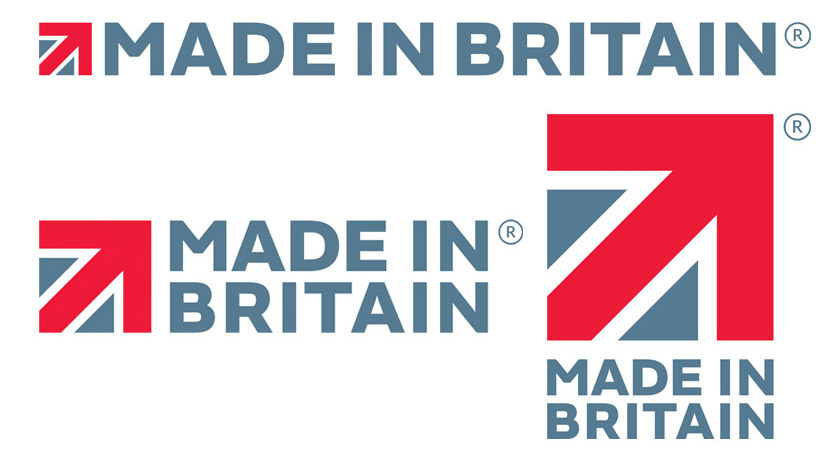MADE in Britain is a very proud organisation. Its distinctive logo won a prestigious design award and it is registered with the UK Intellectual Property Office. So, it’s official. Three of its versions look like this:
 It’s also protected. That’s why it has the ® symbol on it. The brand can’t be used by any organisation that makes its products in Britain. Only members of the Made in Britain organisation are granted a licence to use its official, protected mark. Members must meet certain criteria; the official Made in Britain asks questions about their provenance, ethics, sustainability and transparency.
It’s also protected. That’s why it has the ® symbol on it. The brand can’t be used by any organisation that makes its products in Britain. Only members of the Made in Britain organisation are granted a licence to use its official, protected mark. Members must meet certain criteria; the official Made in Britain asks questions about their provenance, ethics, sustainability and transparency.
There’s also a small charge to be a member of Made in Britain. Fees start at just £150 a year for small businesses and because the official Made in Britain organisation is not-for-profit, all of this revenue goes towards the many additional benefits it offers to members.
Made in Britain provides its members with support in four key areas: sales, marketing, PR/comms and export. It promotes the interests of manufacturers through its membership of the All-Party Parliamentary Manufacturing Group and members can access export help through its membership of the Institute of Export and International Trade.
It holds events across the country and provides a news service for members on its website – both supported by its relentlessly positive and upbeat social media activity. There’s a lot more to gaining membership of Made in Britain than a three-word badge.
The Made in Britain organisation has been successful. It now has more than 1,200 members and continues to grow. Its website is used by procurement professionals looking to source British-made supplies. It is putting consumer products in front of millions of viewers on a leading television shopping channel and the distinctive mark is being used on thousands of new products every day.
When an organisation is seen to enjoy success it almost always leads others to try to emulate that success. They say that imitation is a form of flattery but it can lead to confusion, frustration and disappointment. Made in Britain has recently heard from a number of companies who have experienced all three of those emotions when they mistook one of these other organisations for its own.
John Pearce, chief executive of Made in Britain, says, “There are a number of other organisations which initially appear similar to Made in Britain but are actually quite different. One example is a business which offers the use of its logo ‘for free’ in exchange for large amounts of commercial information, such as details of their suppliers and other sensitive commercial data. The official Made in Britain organisation does not request such sensitive information. Other organisations also do not have the same ability to promote the business as we do with our internal network and external connections such as our membership of the Institute of Export and International Trade.
“We often find out about other seemingly similar organisations when applicants become frustrated. Having sent in their details, applicants can be left waiting to find out if they have been granted permission to use another logo and seek out other contact details. It’s only when they email us, at the official Made in Britain organisation, they often feel like they should have applied to us with the commercial benefits that we provide to our members at the start.
“There are lots of ways to tell people your product is made in Britain, but only the official, licensed Made in Britain collective trademark, with the ® mark, tells customers that you are an ethical, transparent, sustainable manufacturer of British products. And membership of the official Made in Britain organisation brings so many priceless benefits.”
By Made in Britain 5 years ago | By Made in Britain